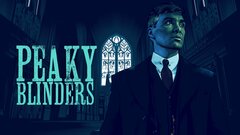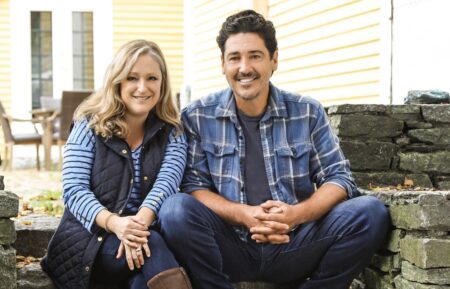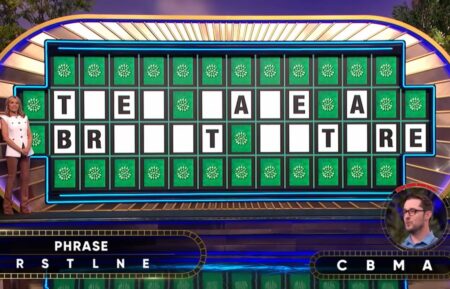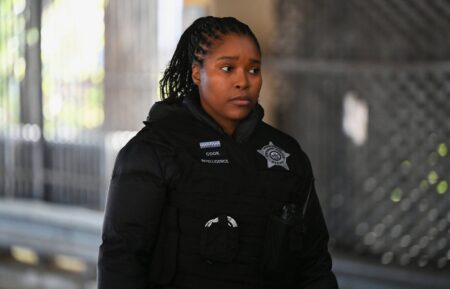‘Peaky Blinders’ EP on Tommy Shelby & Redemption and the Future of the Franchise
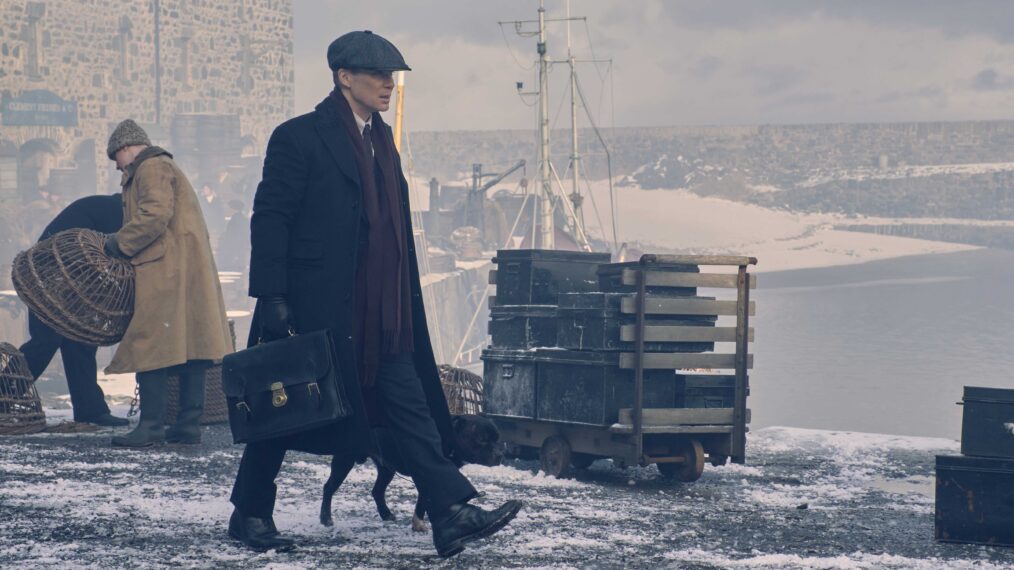
Q&A
Peaky Blinders, the hit series set in post-World War 1 Birmingham UK, has ended after a six-season run, or has it? With a rumored movie coming up and a dance-theater piece that will be shown in different venues around the UK, it seems like we’re not quite done with the now-beloved yet troubled Shelby family.
To enlighten more about the series finale and what is coming up next for the franchise, executive producer Caryn Mandabach spoke to TV Insider and uncovered what else we can expect from our favorite Birmingham gangsters.
In the finale, Tommy Shelby’s (Cillian Murphy) life seems to be getting a little better. So what can the viewers expect from Tommy in the future? And is he past redemption?
Caryn Mandabach: This is what the writer Steven Knight wants you to wonder about. And rather than make any assumptions, I think that it’s a bigger question: “Can anybody really be redeemed?” So, I don’t know. I don’t even think Steve knows.
How can he even approach redemption? I think he’s done a great job of coming closer to redemption as a character. These are sort of esoteric, metaphysical questions. That’s what makes him such a bona fide, giant hit character.
Michael Gray (Finn Cole) dies, and that was in no small way related to his mom Polly Gray’s (Helen McCrory) death. Polly’s death in the series happened because Helen McCrory, died in real life. So, would Michael have survived if Polly was still around?
I think he would have lived. But Steve Knight will always say he regrets killing people.
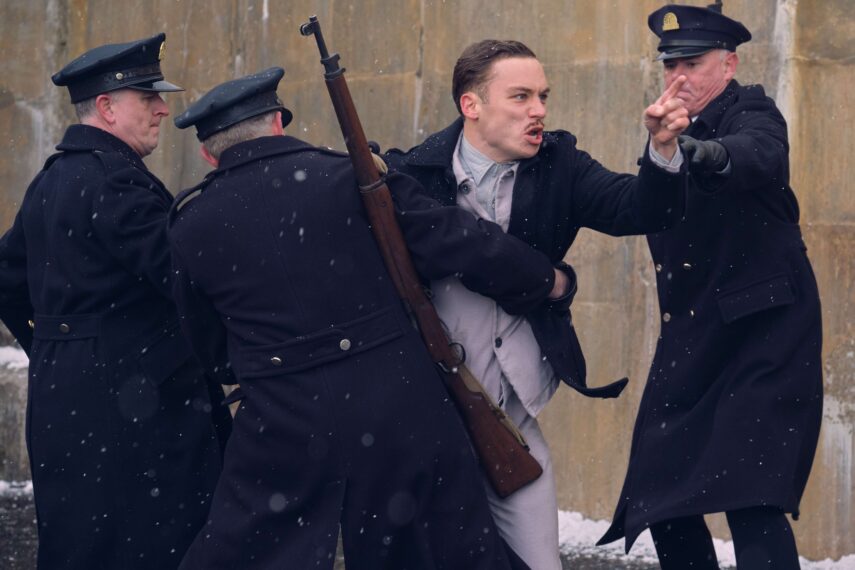
Netflix/Matt Squire
Are there any plotlines that would have changed if it wasn’t for the tragic death of Helen McCrory?
No, because a lot of the way that Steve operates isn’t predictable. It’s important to tell you that he’s written every episode. So he kind of wants to see or feel the future context, that you’re viewing it in a time and a place where it could be said that Fascism was on the rise, here [the UK] and in America, so I don’t know what he would have done. To be honest, he doesn’t know what he would have done.
And how would you explain the ending of the series?
I think it was an incredibly satisfying ending, irrespective of the tragedy of Helen McCrory’s death, because the road to redemption is a complicated one, and for the people who experience it, it’s extremely difficult. It has a giant impact on everyone else in their orbit. Their wives, their children, their family, their friends. [Tommy Shelby] didn’t kill the doctor who betrayed him in the end. And Michael revenged Polly’s death. So, I think both of those choices were representative of the difficulties of actually getting redemption. I think it was an exceptionally challenging problem for Steve, which he handled beautifully. What do you think?
I have always been a fan of Tommy Shelby as a character. So, I think, to me, it sounds like redemption is possible because he started as a character that was deeply complicated. Throughout the series, I think we kind of start to understand his reasonings. But then, obviously, he crossed the line a few times.
Well, the thing is, Harry, the barman, describes him when he walks in the door: “When he was a kid, he was such a nice kid, so friendly, and wonderful. And then the war, and then he became dead inside.” And that’s what we’re seeing, a guy who’s revivifying himself.
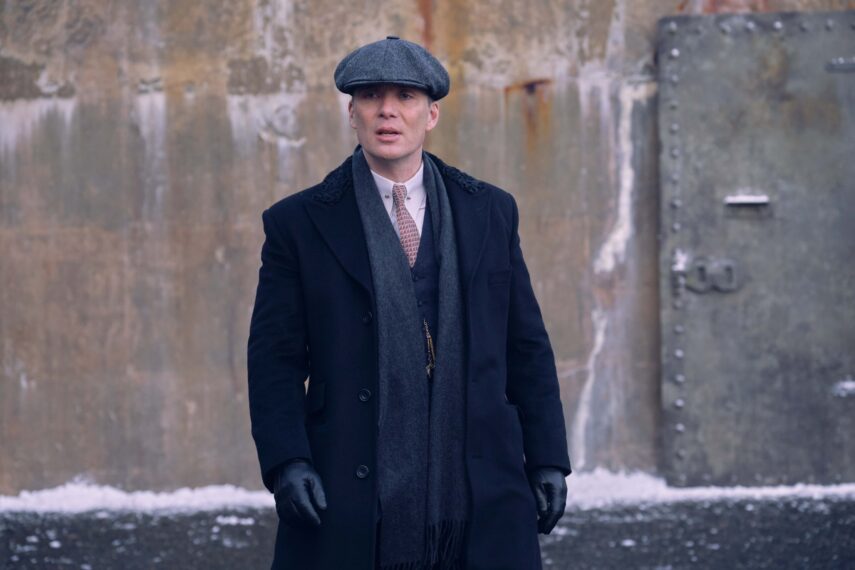
Netflix/Matt Squire
It has often been discussed that Tommy’s character resonates with people who experience PTSD and who have been in these situations.
That’s why it’s resonating all across the world because it isn’t just people in the UK or the US who’ve experienced PTSD. He has a line, I think it’s in Series 2, where he says, “I’m just the best example of what a working-class man can hope to achieve.” And so, wherever there’s an aspirational culture, where the men have been particularly afflicted, there’s a Peaky Blinders viewer.
Did you know in the beginning that the franchise would exist in several chapters and media forms?
Well, actually, the official movie announcement has not yet been made. It’s been rumored, but it has not yet been announced. It was always the intention to make a hit television program that would be successful all over the world. But we didn’t necessarily know that from the beginning. We didn’t know what we had yet.
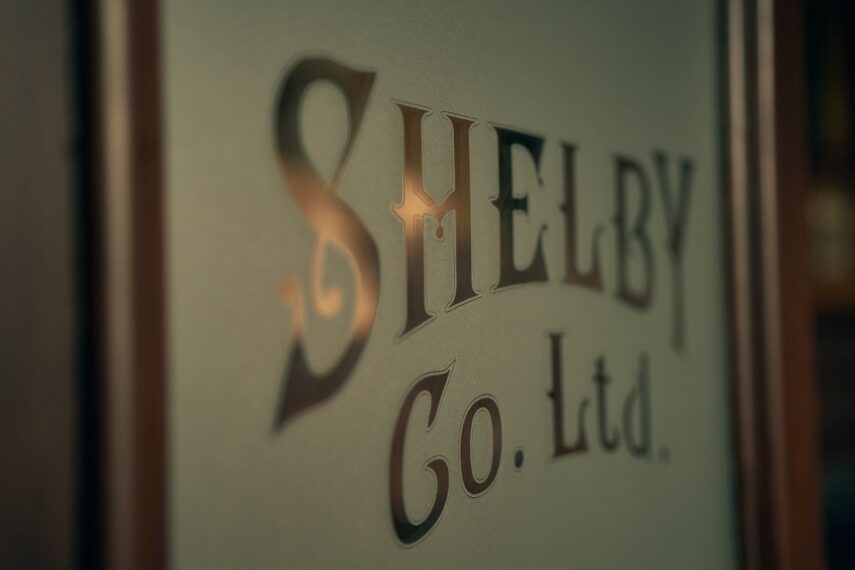
Netflix
What went into the decision to change the direction of the show? And when was this decided?
The decision to do six seasons, rather than seven or eight, or nine or 10, was made as we were doing Season 5. We thought, “Oh gosh, I think our story has been told pretty much.” And there was always a thought in our head to do a movie, but subsequently, the more kind of brewing thing was how to continue it. Because now, in this changing TV landscape, it could be in a lot of forms. It could be this or that, or now we’re doing immersive theater here in London. So, it’s how to extend a brand.
I wanted to ask about the dance theater production, Peaky Blinders: The Redemption of Thomas Shelby — how did that come about? And can the audience expect more pieces like this?
I hope so. It came about because the immersive theater during the pandemic was kind of something that everybody wanted to see, just as something experiential. So we were approached by some lovely producers, people who’d had experience in this area, and we said yes. I hope that we can take it to America eventually.
Tommy Shelby became the ultimate anti-hero, and it has influenced a lot of people. There are so many pubs, coffee shops, and murals that popped up in relation to the show. Was there anything about the character or the show before it aired that you had you thinking, “Oh, this will resonate with people and will have a huge effect”?
We didn’t think it would be a global hit, we thought it would be a hit in the UK. But the majority of the viewers who say they like it, it turns out they really love it. It’s not just a hit. It’s a deeply felt thing. People dress up like Peaky Blinders. So, we’re obviously a hit in the US, but also Brazil, Russia, India, China, Ukraine, and a lot of unexpected places. I think it’s just about the effect of war anywhere, how men respond to it, and what happens to their families and how women respond to that.
Has it always been important to the show to include historical figures and intertwine them with the Peaky Blinders?
The genre is really historical fiction. I mean, originally, there was somebody named or there was a family called the Sheldons. So we changed it to be the Shelbys, but the representation of people who were real characters was always a part of the thing, too. Mosley was a historical figure, and we knew that he was with Diana. We want the representations of these real people to be accurate. We don’t know if they smoked or if they drank or who they slept with. You don’t know the details, but you do want it to be real.
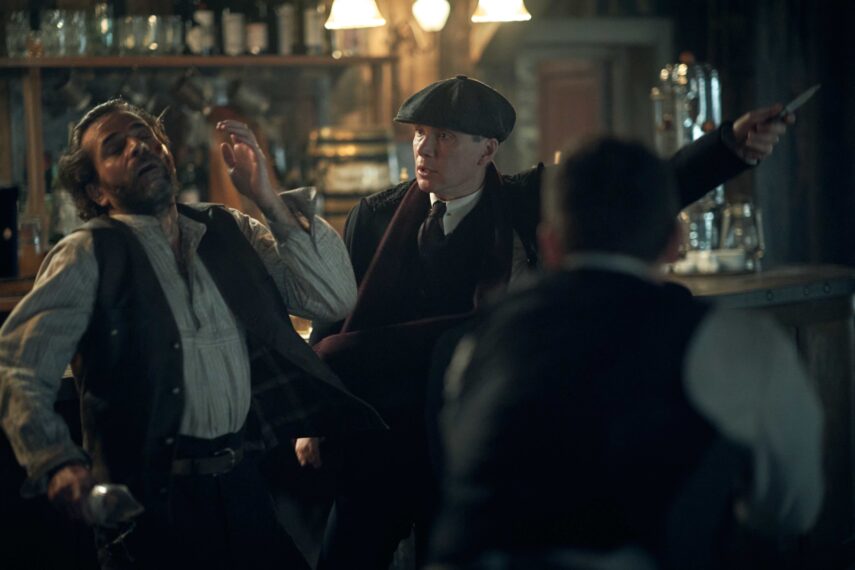
Netflix
How did you try to recreate that specific feeling of what Birmingham was like in the time period between WW1 and WW2?
You have to recreate the feeling in order for anything to resonate with any public. You have to have authenticity dripping off every pore. So, it’s the accents, the sound design, the stuff that you hear, the “boom, boom, boom” in the background. You have to have verisimilitude, otherwise, you’re not really in it. You do not have to be from Birmingham to understand it. It transfers all over the world, because you may not live there, but you’re feeling like you’re there.
What will the future of the franchise bring, and how would you like to see it end?
I don’t think the franchise will ever end. Assuming that if we did a movie to take place in the ’40s, and if we did a spin-off series, it would probably be later than that. Because of these sorts of issues that the show talks about — whether it’s class or race or however you experience your context — it’s really important to know that you’re not alone.
Peaky Blinders, Streaming now, Netflix
From TV Guide Magazine
How 'Countdown' Recruited Jensen Ackles to Go Full 'Die Hard'
Countdown boss Derek Haas talks creating the character around Ackles, and the cast teases the “Avengers”-like team of the crime thriller. Read the story now on TV Insider.



